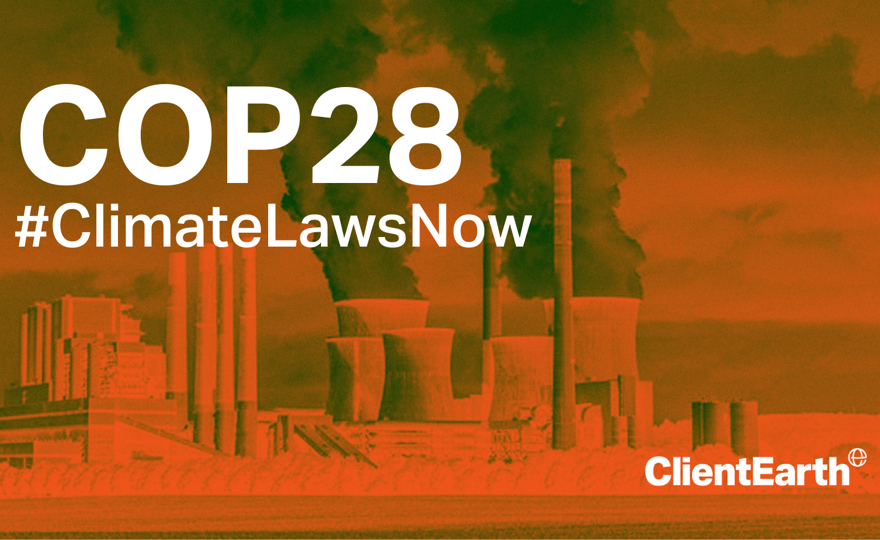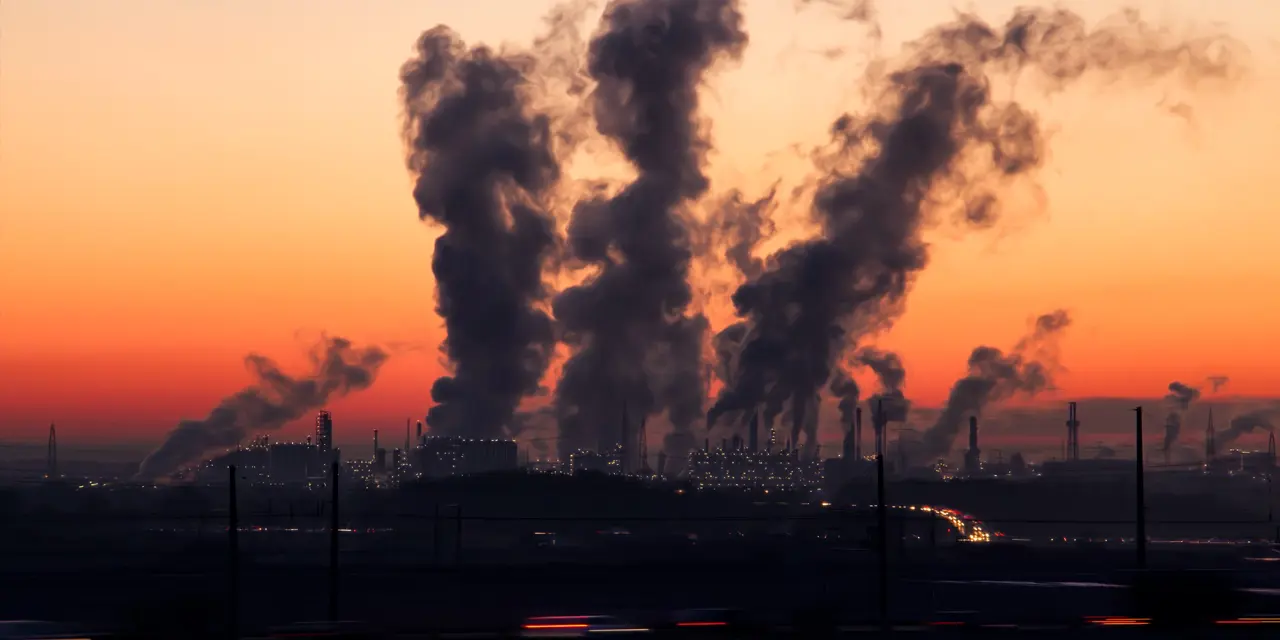ClientEarth Communications
27th November 2023


The science couldn’t be clearer: we need a phase out of fossil fuels if we are to be within any chance of keeping global temperature rise under 1.5C and avoiding the worst impacts of climate change.
We desperately need to close the gap between the net zero promises we’ve seen from states at previous COPs, and what is actually being delivered. Global leaders simply must make bold and achievable pledges to turn away from the fossil fuels that are driving us further into climate catastrophe, through reducing demand, targeting harmful subsidies, and cracking down on greenwashing.
Below, we explore the areas we need to see real progress in at COP28 to phase out fossil fuels for good.
According to the IMF, total global fossil fuel subsidies – financial support from governments and authorities to fossil fuel companies, often in the form of tax breaks – amounted to $7 trillion in 2022. These subsidies must be stopped as soon as possible so that public resources can be shifted towards sustainable energy and climate action.
We need to make sure money flows away from harmful fossil fuels, and towards low emissions energy systems, as this will reduce the demand for fossil fuel energy and make sure the biggest polluters are paying the biggest price.
We know that fossil fuels have devastating health, social, environmental and economic consequences. Both the right regulations, and political will are needed to reduce and then eliminate the consumption of them. Fossil fuel industries rely heavily on PR, advertising and sponsorship to be able to mislead the public about the harm their products are doing, and to obstruct and delay climate action so that they can continue business as usual. This includes spreading climate disinformation and misrepresenting the science on the urgent need to phase fossil fuels out.
These PR strategies also inform and influence countries’ policies and conversations around fossil fuels, preventing real climate progress being made.

We need global action to reduce the demand for fossil fuels in order to phase them out.
We support the campaign in Europe for a ban on advertising and sponsorship by fossil fuel transport companies, and steps to ban fossil fuel advertising are also being taken in countries and cities around the world.
We’re also seeing, and need to see, more advertising agencies boycotting fossil fuel clients. Major cultural institutions and sporting events, such as the Australia Open are now rejecting fossil fuel sponsorship, and many media outlets are refusing to publish fossil fuel advertising. This is all key to fossil fuel phase out.
Greenwashing is when a company uses advertising, PR or sponsorship to represent its business practices as more sustainable than they actually are. It is a tactic employed by many industries to distract from their harmful fossil fuel-based products and services, so that they can continue to make money from them.
As a result, consumers are being misled, and are not being given all the information necessary to make the most sustainable choices. This needs to stop if we are to phase out fossil fuels.
When it comes to anti-greenwashing regulation, we can learn from The WHO Framework Convention on Tobacco Control, which displays how important the following will be in reducing demand for fossil fuels:
We have a strong track record in using the law to tackle greenwashing, which began with a precedent-setting complaint against BP. In 2019, we lodged a world-first legal complaint, saying that BP’s global ‘Keep Advancing’ and ‘Possibilities Everywhere’ ad campaigns misled the public by focusing on BP’s low carbon energy products, when more than 96% of BP’s annual spend was on oil and gas. This led to BP withdrawing its advertisements.
Today, we have a series of live actions against the greenwashing activities of KLM, Total, Danone and others, using the power of the law to stop the dangerous narratives around oil and gas, emissions from flying and plastic production.
We encourage countries at COP28 to commit to publishing credible plans to tackle greenwashing, to close the gap between net zero promises and what’s delivered, and working towards laws that phase our fossil fuels and shift energy systems towards more sustainable energy sources.
We need bold, meaningful action, and we need it now.